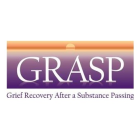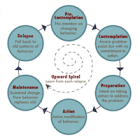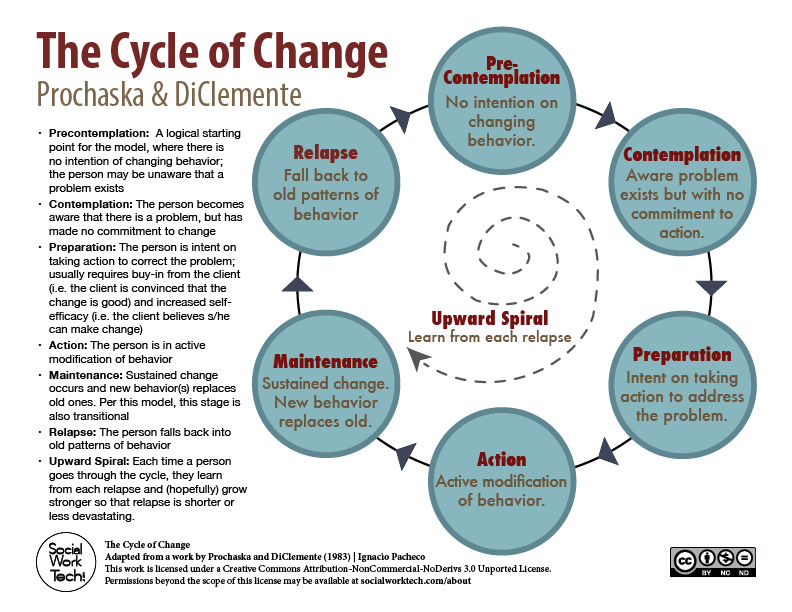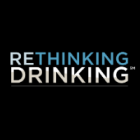All Posts in Category:Substance Abuse
Smoking Cessation: Local & State Resources share

- Phoenixville Hospital – offers free support groups for quitting smoking
- Tobacco Free Support Group – You don’t have to have quit to benefit from this group. The goal is to provide support to people who are contemplating making this healthy life-change. As of 10/23/17, the group meets the 4th Monday of every month in the Phoenixville Hospital Cafeteria (140 Nutt Rd, Phoenixville). For information and to register, call 610-983-1021 or go to their website and click on “Support Groups.” This group is free of charge.
- Tobacco Cessation – Ready to quit? Phoenixville Hospital also runs a FREE, 8-week smoking cessation program that meets for eight weeks and provides FREE nicotine replacement therapy. As of 10/23/17, there is a Thursday Group and a Wednesday group. For information and to register, call 610-983-1021.
- PA Free Quitline – Expert, confidential coaching to become tobacco-free. Nicotine replacement therapy (if available). Progress reports provided to your therapist, if you have a therapist and would like that to happen. It appears to possible require a health care professional to refer you to the program but it’s probably worth calling to inquire if you don’t have one to do that for you.
GRASP: Grief Recovery After Substance Passing share
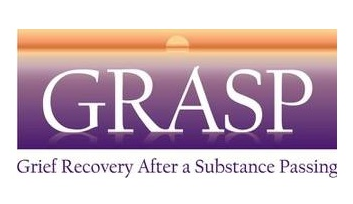 If you are coping with the tragic death of a loved one due to drugs, including alcohol, GRASP can provide much needed understanding and support. In my experience, this kind of loss can be much more complex than the “expected” end-of-life passing of an elder or, even, terminal illness. Strong feelings of anger, guilt, and possibly even relief can be experienced by survivors of an addicted family member or dear friend. GRASP can help you to determine if there is a support group local to your area, provides written information from people who understand what you’re going through, has links to other resources, hosts retreats and conferences, and has a closed group on Facebook where you can seek support from others who have had similar experiences to your own.
If you are coping with the tragic death of a loved one due to drugs, including alcohol, GRASP can provide much needed understanding and support. In my experience, this kind of loss can be much more complex than the “expected” end-of-life passing of an elder or, even, terminal illness. Strong feelings of anger, guilt, and possibly even relief can be experienced by survivors of an addicted family member or dear friend. GRASP can help you to determine if there is a support group local to your area, provides written information from people who understand what you’re going through, has links to other resources, hosts retreats and conferences, and has a closed group on Facebook where you can seek support from others who have had similar experiences to your own.
Yoga share
 Yoga is good for the body AND the mind. In addition to the obvious health benefits of regular exercise, a good yoga instructor creates an environment that promotes:
Yoga is good for the body AND the mind. In addition to the obvious health benefits of regular exercise, a good yoga instructor creates an environment that promotes:
- A sense of serenity and acceptance for who you are in the moment.
- Guidance for how you can recognize when your “monkey mind” is swinging from thought to thought with the worries of the day and gently turn your attention back to the present moment and the feeling of your nourishing breath
- Feeling comfortable in your own skin.
- Increasing confidence as your strength and flexibility grows.
There is a TON of research that strongly supports using yoga to assist with the treatment of: anxiety (including Post Traumatic Stress Disorder); depression; ADHD; sleep problems; substance abuse, anger issues, and schizophrenia (when done in conjunction with medication). It’s an activity that can be modified for people of any age, from 2 to 102, and you can take with you anywhere you go! There are even some instructors that have training in both mental health therapy and yoga and can customize the work to really target anxiety and trauma specifically, teaching you how to be comfortable in your own body again.
Personally, my ability to use relaxation breathing as a skill in my daily life has never left me, even though I haven’t done a class for almost 10 years. One day, when my life gets a bit simpler, I fully intend to return to the benefits of a more regular, devoted yoga practice. In the meantime, I remind myself the words of wisdom of one of my former instructors, “Even one sun salutation is a yoga practice.”
More Resources for Parents of People with Addiction share
 This month there is a very interesting article in Money Magazine, These Parents are Cutting Off Their Opioid Addicted Children: And it’s the Toughest Decision of their Lives by Kristen Bahler. It speaks to the very difficult choice many parents in this position face, financially. As with everything else, there is no singular path that people should follow in every situation. However , a lot of parents eventually come to a point where, partial, or even complete, withdrawal of financial support ultimately is the “right” answer.
This month there is a very interesting article in Money Magazine, These Parents are Cutting Off Their Opioid Addicted Children: And it’s the Toughest Decision of their Lives by Kristen Bahler. It speaks to the very difficult choice many parents in this position face, financially. As with everything else, there is no singular path that people should follow in every situation. However , a lot of parents eventually come to a point where, partial, or even complete, withdrawal of financial support ultimately is the “right” answer.
My training in substance abuse is limited, so I don’t recommend that you consider taking these steps without consulting with a substance abuse professional. Nevertheless, because of the pervasiveness of addiction in our culture, I still find myself working with people around these issues. It’s a tricky issue for parents and I can completely relate to the temptation to try to do what initially feels like being the most supportive parent you can be and then ultimately realizing that you are enabling your child’s unhealthy choices and behavior. I think it’s a normal process that most go through until they find a balance of what’s right for them.
One thing I will say, overall…I definitely recommend that setting financial boundaries, as well as personal ones, work best when framed in a firm yet loving/accepting way. This is a hard skill to learn. Therapists and support groups can provide guidance about how to do this. I also really like the CRAFT program, which I have written about, previously. The main reason I make this recommendation actually isn’t for the parents’ benefit, it’s for the addicted family member. It’s easier for people to step onto the challenging path towards recovery when they know that your love is, and will always be, there for them. Shame and humiliation only serves to make people feel worse about themselves and gives them more reason to avoid their feelings with intoxication. You have to walk the line of loving acceptance and logical boundaries. Remember, love doesn’t mean doing everything they expect of you.
There is one critical detail that I think a lot of parents, and even some professionals, overlook when parents are stuck in rescue mode. It’s important to understand that there is a subtle message that is communicated when we repeatedly bail out our kids, “I don’t think you are capable of solving this problem or even figuring out how to attempt to solve this problem,” and, “It’s my job to protect you from all of life’s stresses and discomforts.” The biggest problem with this underlying message is that everyone’s life involves being able to tolerate discomfort and solve problems. These are core life-skills that we all need to learn, one way or another, and the only way to do this is through uncomfortable experience, making mistakes, and becoming more skilled over time. This taps into my favorite thing to teach people about, having a Growth Mindset. I encourage you to check it out.
Getting back to the Money article, there are several resources listed that can be helpful to parents. I will link them here for your convenience.
- Parents of Addicted Loved Ones (PAL) – a faith-based network of parent-volunteer run support groups, including two weekly telephone groups if there isn’t an in-person group close to you. They have a specific, education driven series of presentations, and these resources are available on their website.
- Learn to Cope – online forum for family members of addicted loved ones.
- Substance Abuse and Mental Health Services Administration (SAMHSA) – a government website that, among tons of information and resources, includes several different 24/7 information and treatment referral hotlines.
- Al-Anon & Nar-Anon – volunteer, peer-run groups focusing on educating and supporting loved ones affected by addiction. Based on the 12-step model used by Alcoholics Anonymous/Narcotics Anonymous.
- Grief Recovery After Substance Passing – a community of support groups who have lost loved ones to addiction and overdoses.
Stages of Change share
Once upon a time there were two researchers, Prochaska & DiClemente. (If you can’t already tell, I’m in a bit of a silly mood at the moment.) They were smart people who did research and read other people’s research and put it all together back in 1983 to come up with their Stages of Change model. This model is used heavily in the treatment of addictions but can also be applied to things like the treatment of anxiety and depression…or almost anything really, where change is involved. What they so wisely realized, when it came to making a change in one’s life, was that in addition to understanding the human mind and what can help it to change, you also need to be aware of the person’s readiness to actually do the work to make the change that they are looking for. The stages are Pre-Contemplation (when you don’t even have the desire to make a change), Contemplation (when you recognize that there is a problem and you are starting to consider if you want to make a change), Preparation (when you are starting to gather the resources and information you might need to help you make this change), Action (actively working on making the change happen), and Maintenance (you’ve made the change and can finally start to not work so hard on it, but there may still be some things you need to do to keep this positive change in place).
The Stages of Change model can help us to be patient with ourselves. It can help us to recognize how really ready we (or someone we care about) might actually be to make a significant change in our life. And, it can help us to realize what steps we can take to get ourselves closer to being ready to make this change. There is a therapeutic approach, Motivational Interviewing, that is also heavily rooted in the treatment of addictions but that can be applied in all sorts of other places. Motivational Interviewing is a technique that helps therapists, parents, even friends, to be accepting of the stage of change that a person is in at this moment, and being able to work with them (rather than battle with them) to explore small steps that they might feel comfortable with doing that will get them closer to being ready for change. (I plan to make a post on that at some point but for now, I leave you with doing an internet search.)
Below is an illustration of these stages. I like this illustration in particular because it’s drawn with a spiral rather than in a linear way. This is because there are no rules about the actual order we need to go in as we head towards change. And, sometimes, we even go backwards to an “earlier” level.
The Opioid Epidemic—From The Headlines to Hope share
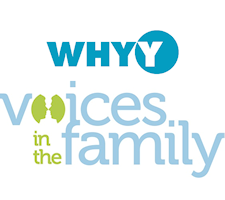
In this episode of Voices in the Family, so many different topics regarding our nation’s opioid crisis are touched on in a very thoughtful, research-based, helpful way. These include: personal stories of how some people fall into addiction; the vulnerability of the adolescent brain to addiction; grief and loss to addiction; how to cope with the issues that arise when you love someone with addiction; tips for what to do and not to when talking with a loved one who is addicted; the value of treating people as individuals, and effective modes of treatment. Lots of great stuff here.
Possible Trigger: I want people to know that parts of this episode could be very upsetting to some because there are people who have lost their loved one to addiction.
The Opioid Epidemic-from the headlines to hope : Voices in the Family : Health : WHYY
The news can sound dire. Opioid addiction is ruining families and taking lives at an ever increasing rate. In this roundtable discussion, Dr. Gottlieb brings together a clinician, researcher, family members and individuals in recovery to go beyond the headlines and look at what is working to bring addicts into treatment.
Rethinking Drinking share
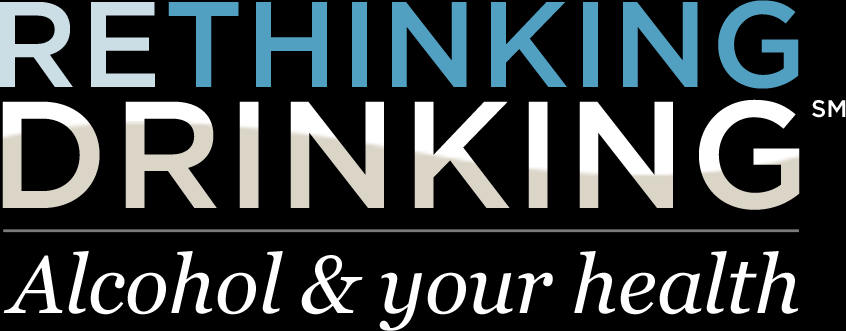 Have you wondered whether you might be drinking a bit too much? Maybe friends have started to suggest that it’s time to think about cutting back. This website, published by the National Institute of Health, provides research-based information that will help you learn more about whether your drinking is still in the safe zone or if it is starting to become a problem. Age, health status, gender are all things that can play a role in how much is too much or how often is too often.
Have you wondered whether you might be drinking a bit too much? Maybe friends have started to suggest that it’s time to think about cutting back. This website, published by the National Institute of Health, provides research-based information that will help you learn more about whether your drinking is still in the safe zone or if it is starting to become a problem. Age, health status, gender are all things that can play a role in how much is too much or how often is too often.
Te site helps you to do the math to see how your alcohol consumption compares to US citizens in general and identify whether you are at risk for problem drinking, If you decide that it’s time to cut back on your drinking, the website offers practical ways to in a way this doesn’t make you feel like a teetotaler but keeps your mental and physical health safer…and perhaps your sense of self-respect too. Bear in mind that for some people, alcohol is an all or nothing deal…one drink and the next thing you know, you’re in blackout. Resources are offered to get help, if you need to stop completely and are struggling to do so.
Community Reinforcement and Family Training (CRAFT) share
 The CRAFT (Community Reinforcement and Family Training) program (briefly described in the video below) was created by the Center for Motivation and Change teaches people who love a person with an addiction how to walk the delicate balance of loving and accepting your loved one for the entirety of who they are right now, including their challenges, while at the same time, being able to have conversations with them that can gradually open their thinking to the possibility of deciding to make a change. It can also help you to “get off of the roller coaster” that addiction creates in people’s lives. You still have to struggle with the emotional pain of watching your loved one who is still on that roller coaster, but you can create a better life for yourself when you recognize what you can and can’t control. Check out their their 20-Minute Guide. This is a private business that I have no connection to. However, I think that what they have to offer is valuable.
The CRAFT (Community Reinforcement and Family Training) program (briefly described in the video below) was created by the Center for Motivation and Change teaches people who love a person with an addiction how to walk the delicate balance of loving and accepting your loved one for the entirety of who they are right now, including their challenges, while at the same time, being able to have conversations with them that can gradually open their thinking to the possibility of deciding to make a change. It can also help you to “get off of the roller coaster” that addiction creates in people’s lives. You still have to struggle with the emotional pain of watching your loved one who is still on that roller coaster, but you can create a better life for yourself when you recognize what you can and can’t control. Check out their their 20-Minute Guide. This is a private business that I have no connection to. However, I think that what they have to offer is valuable.
This model is based on the same science that has created a therapeutic approach called “Motivational Interviewing” that is used throughout the professional substance abuse field. It is a powerful tool that needs to be applied with patience and acceptance. It recognizes the reality that the person with the addiction is truly the only one that can decide to enter treatment and commit to the work that they need to do to stop their substance abuse. This is not a free service, but it may be worth the money. It’s so easy to fall into unpleasant power struggles with a loved one in these situations. These techniques teach you how to be a power struggle ninja and still feel like you are doing what you can to encourage change.


